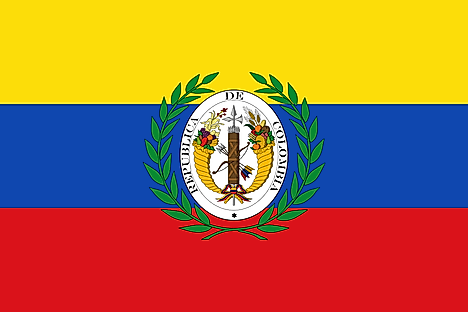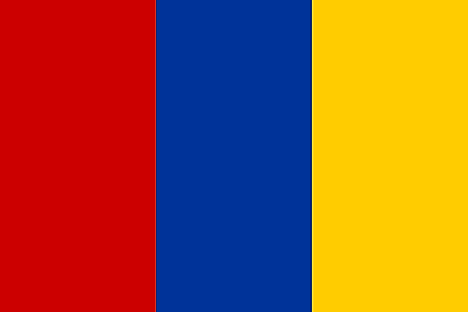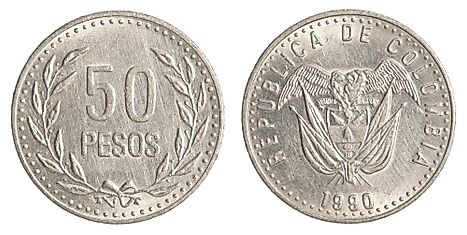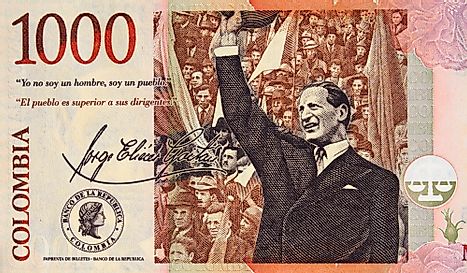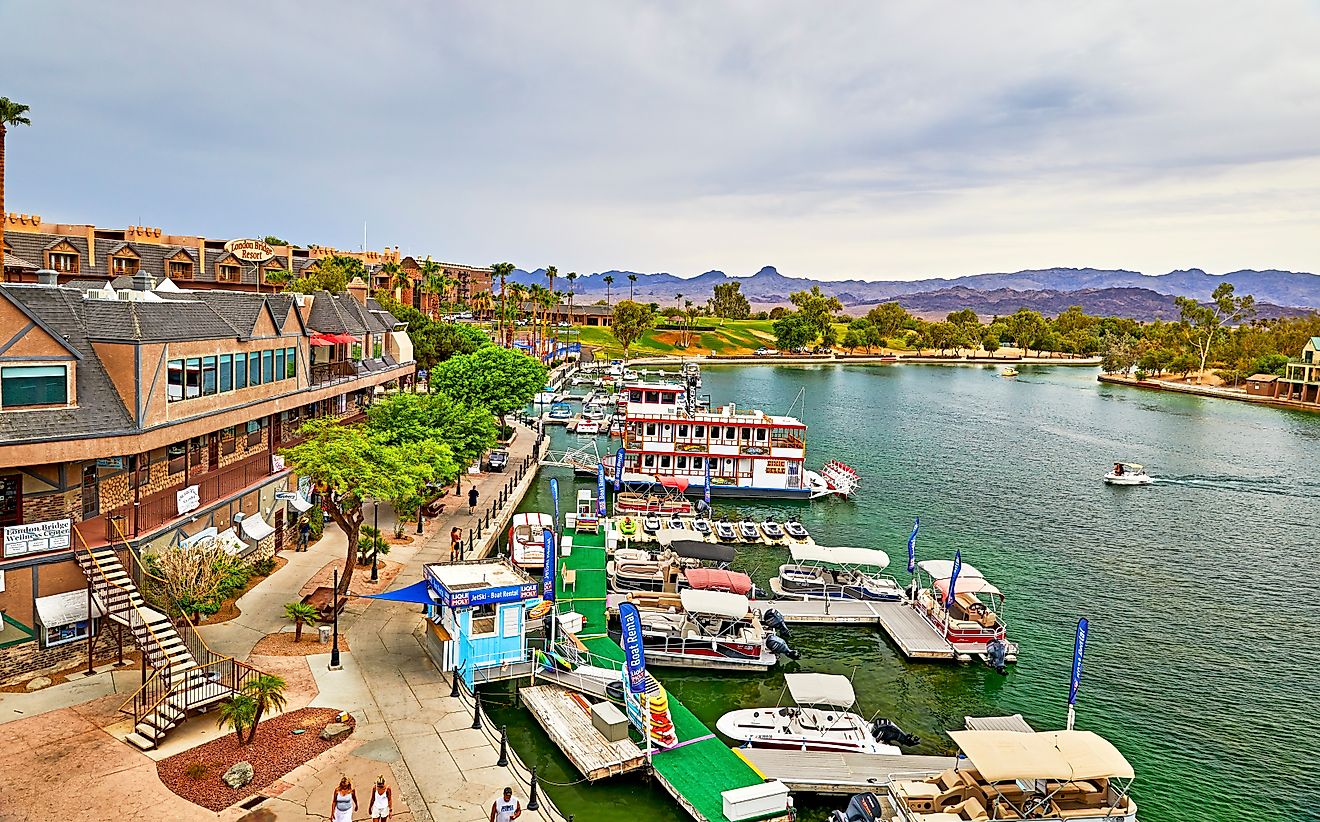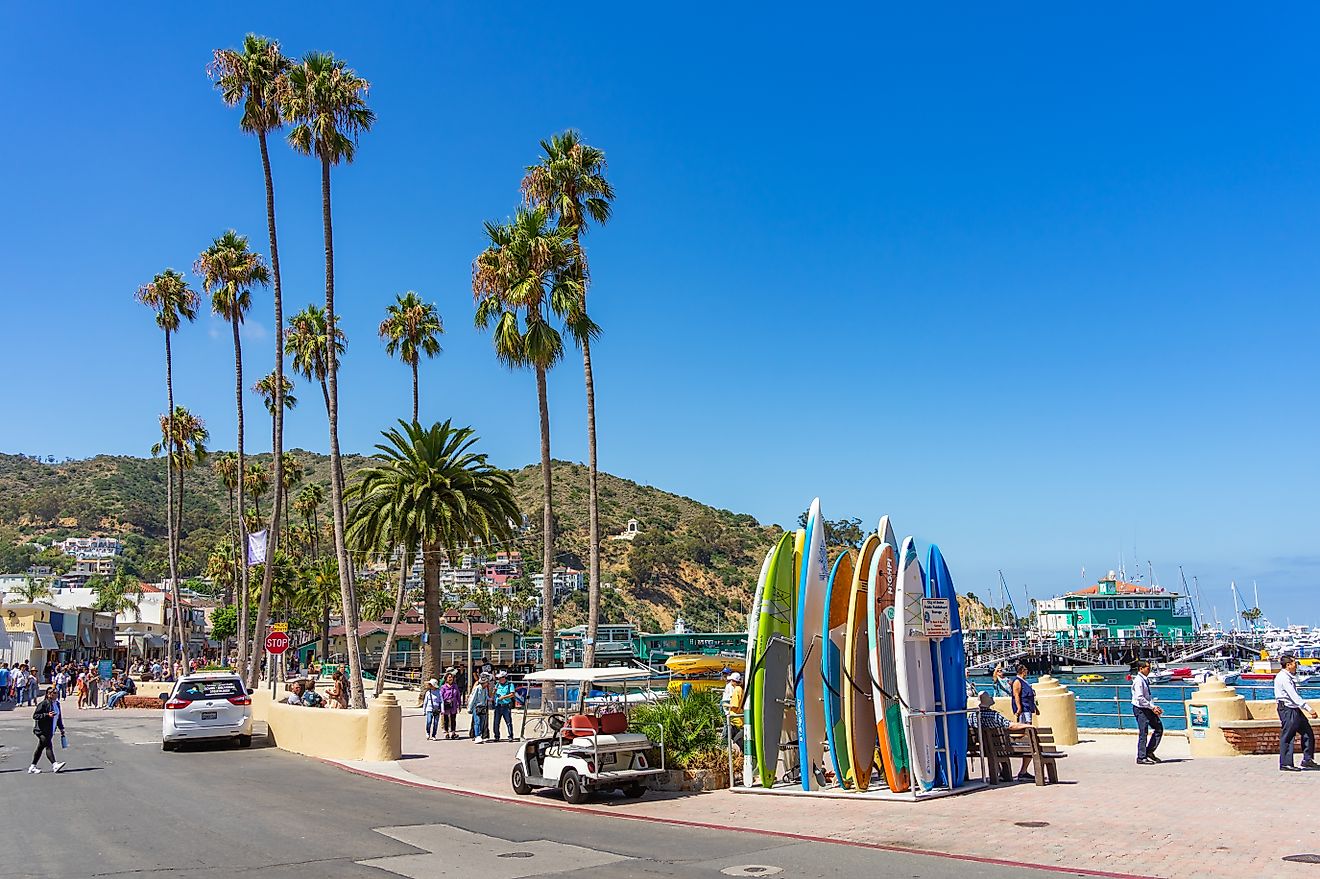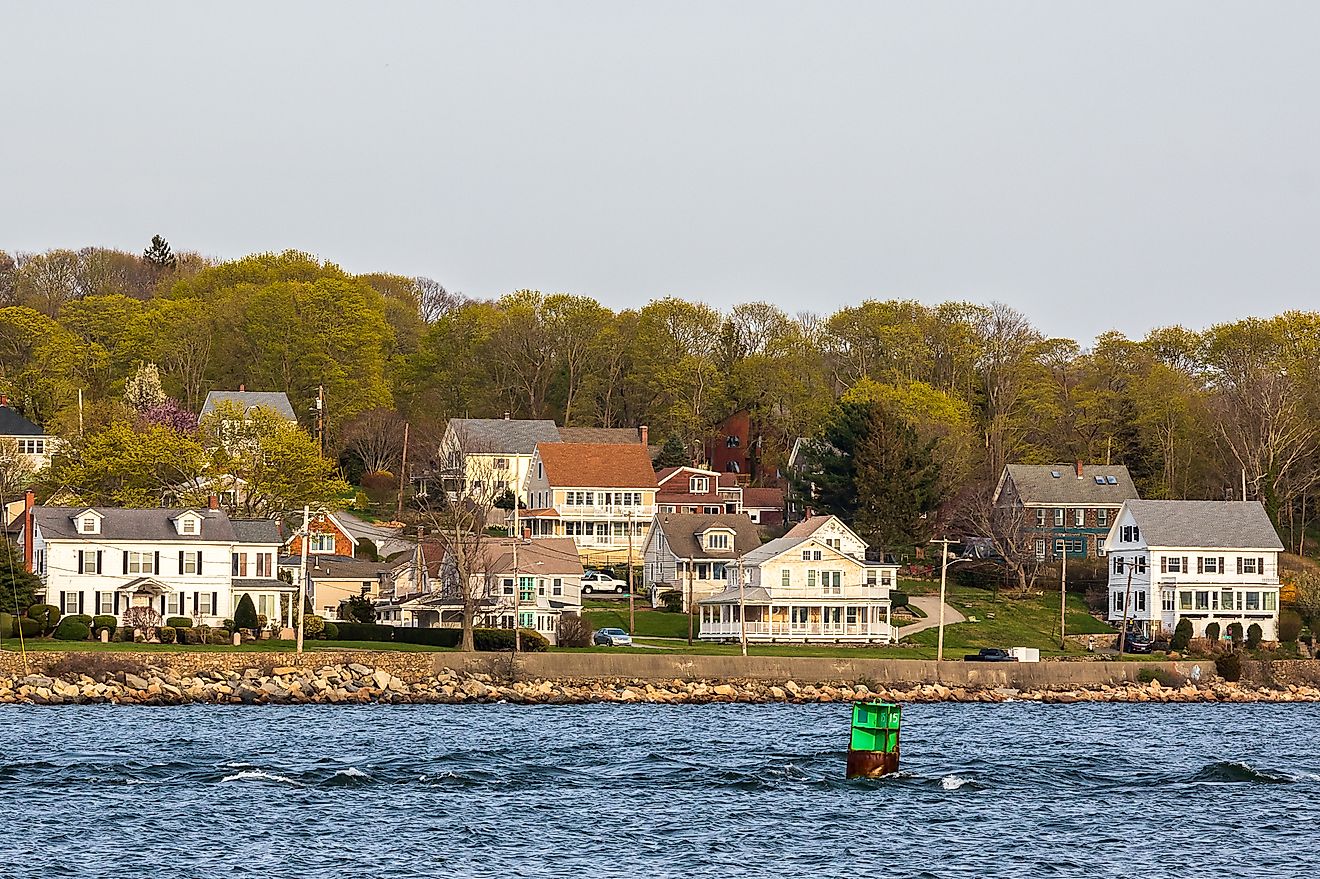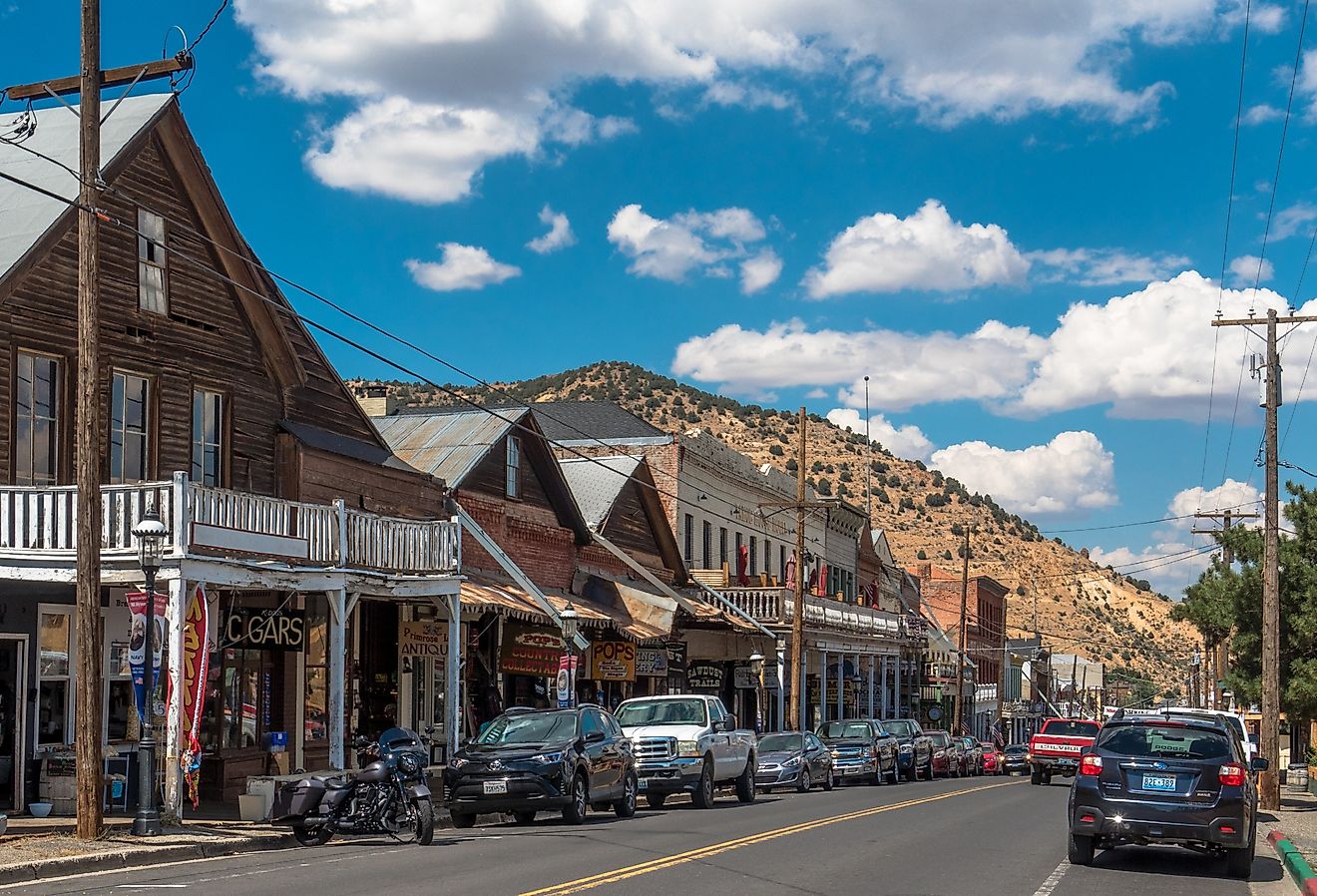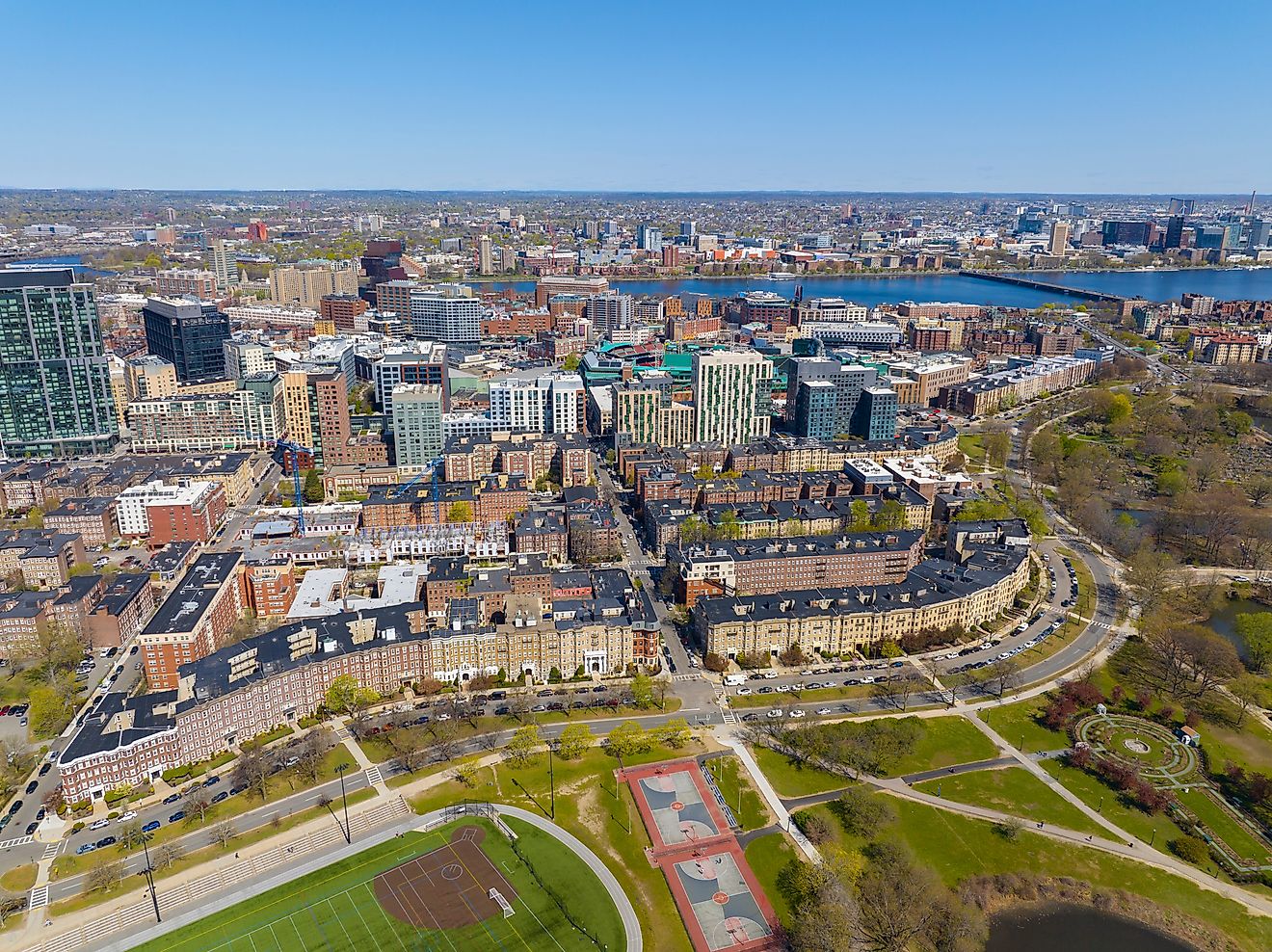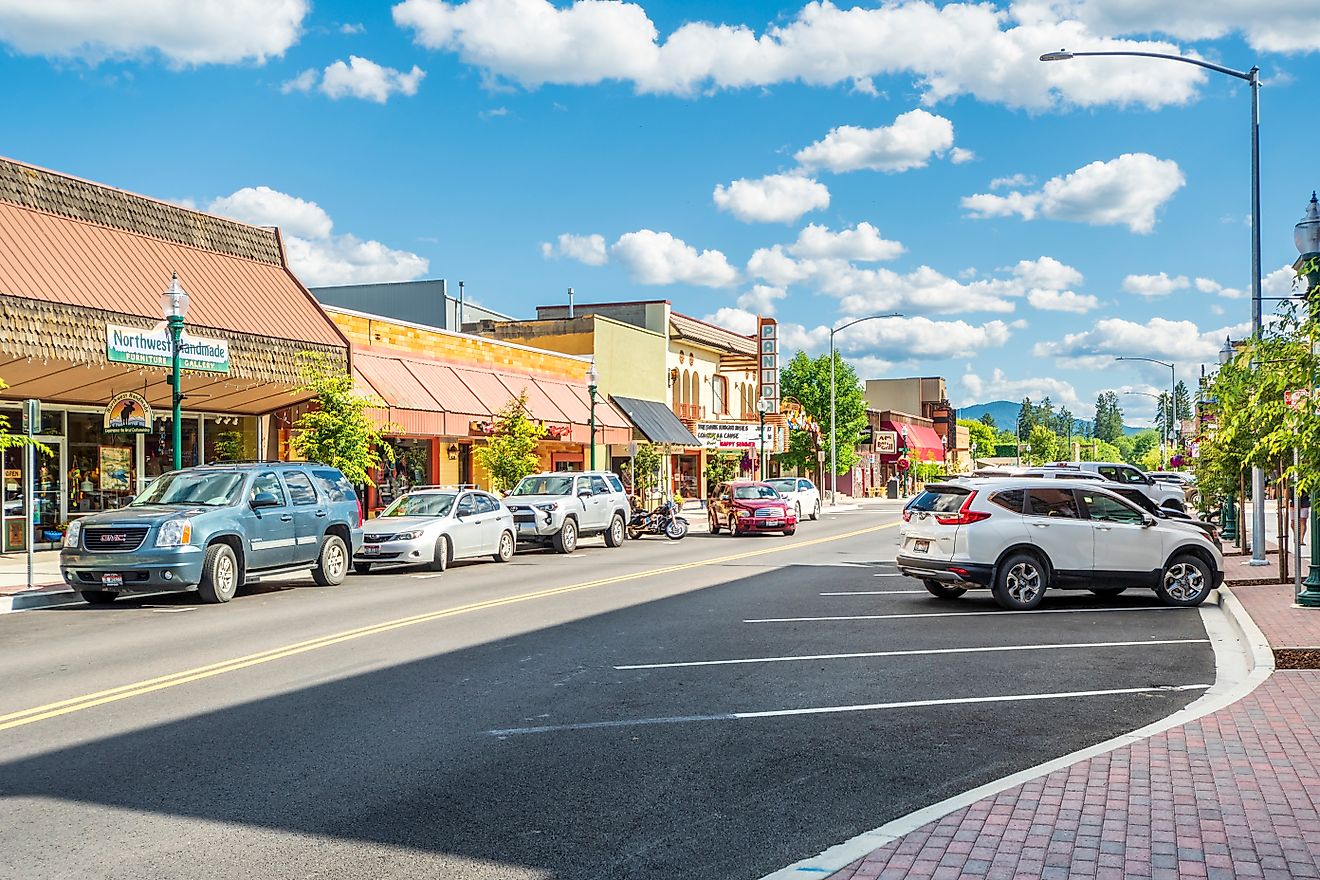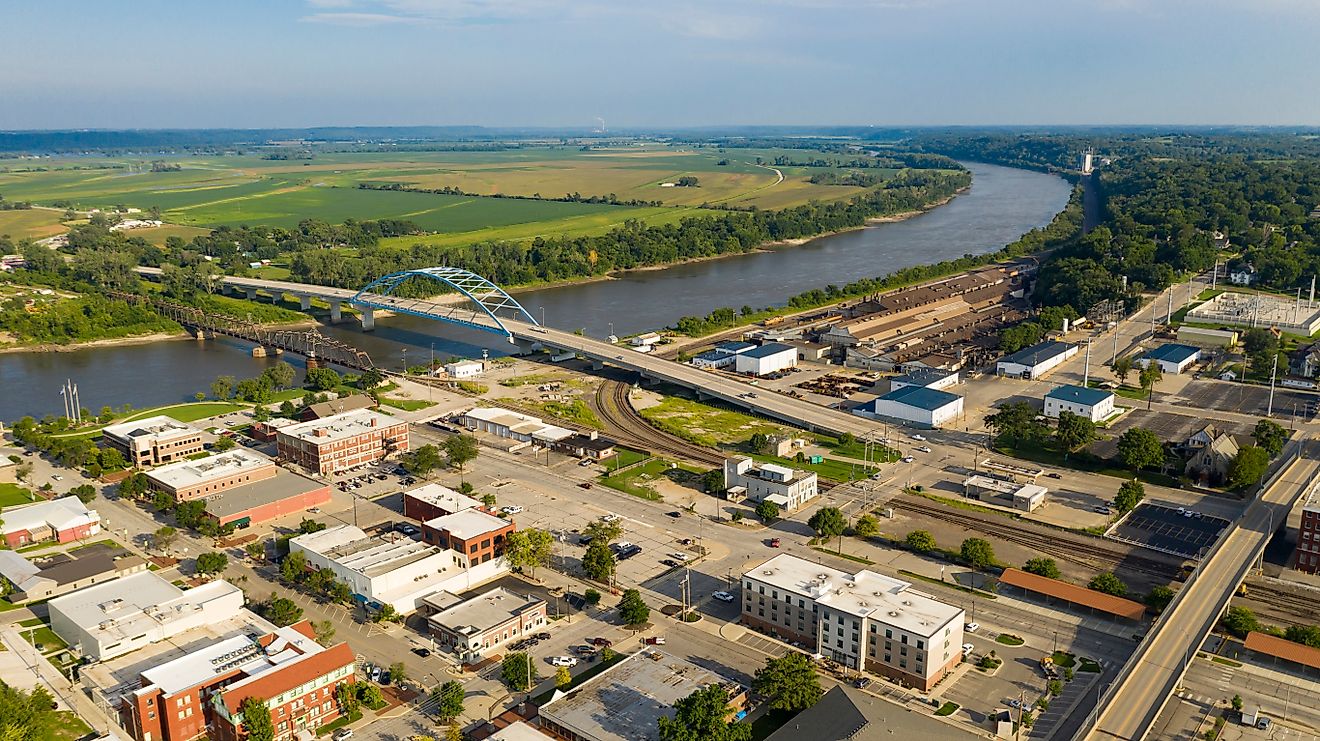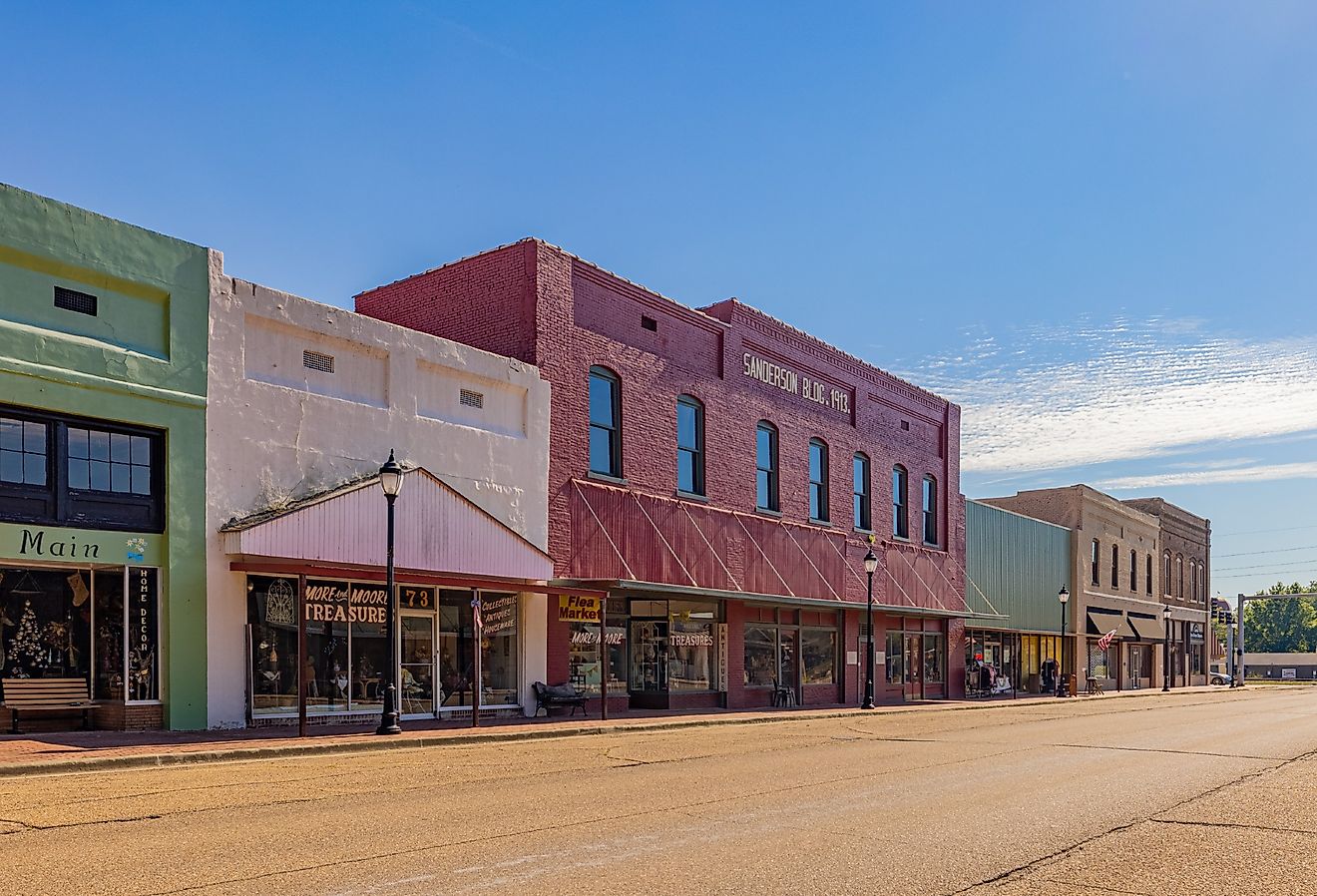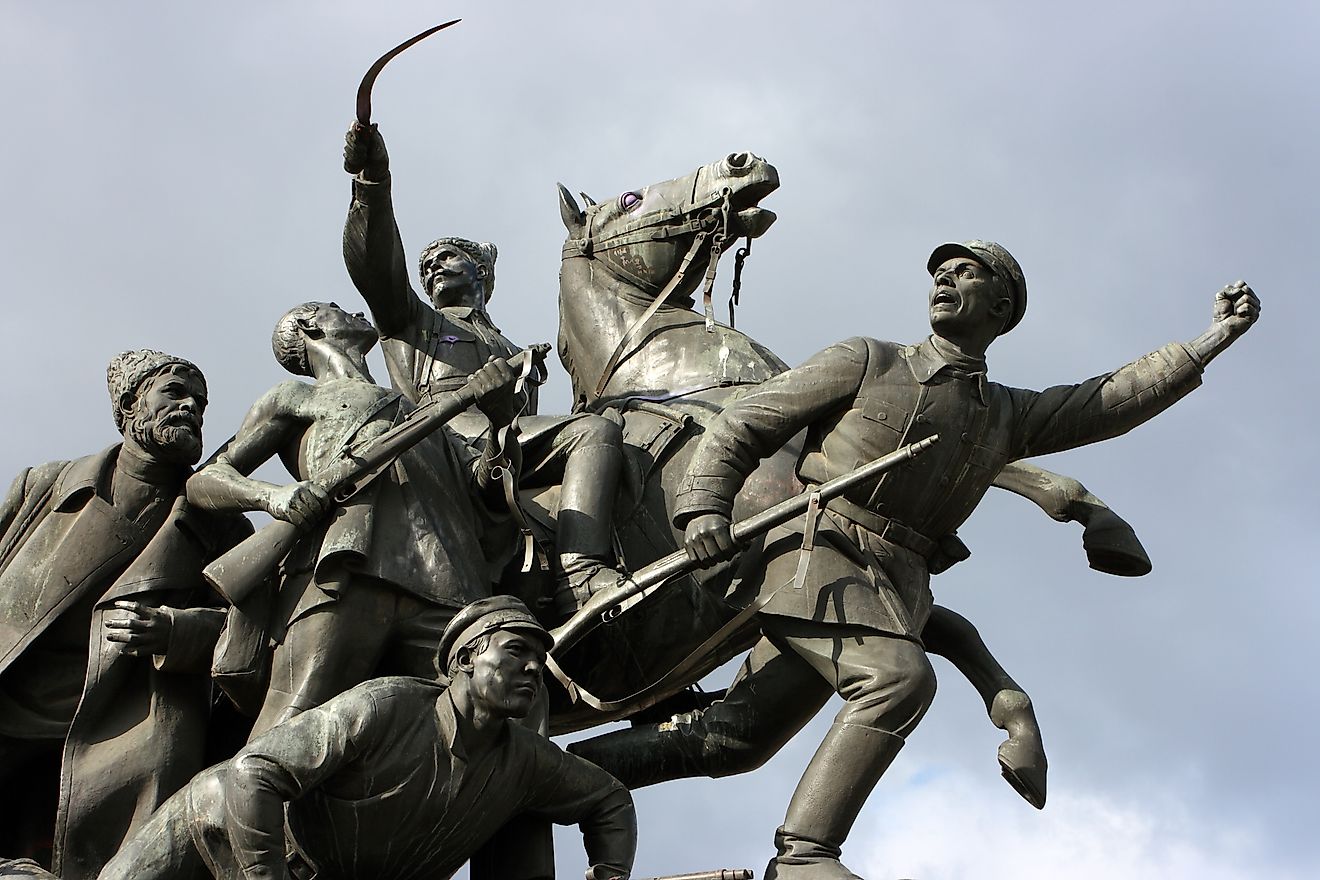Flags, Symbols & Currency of Colombia
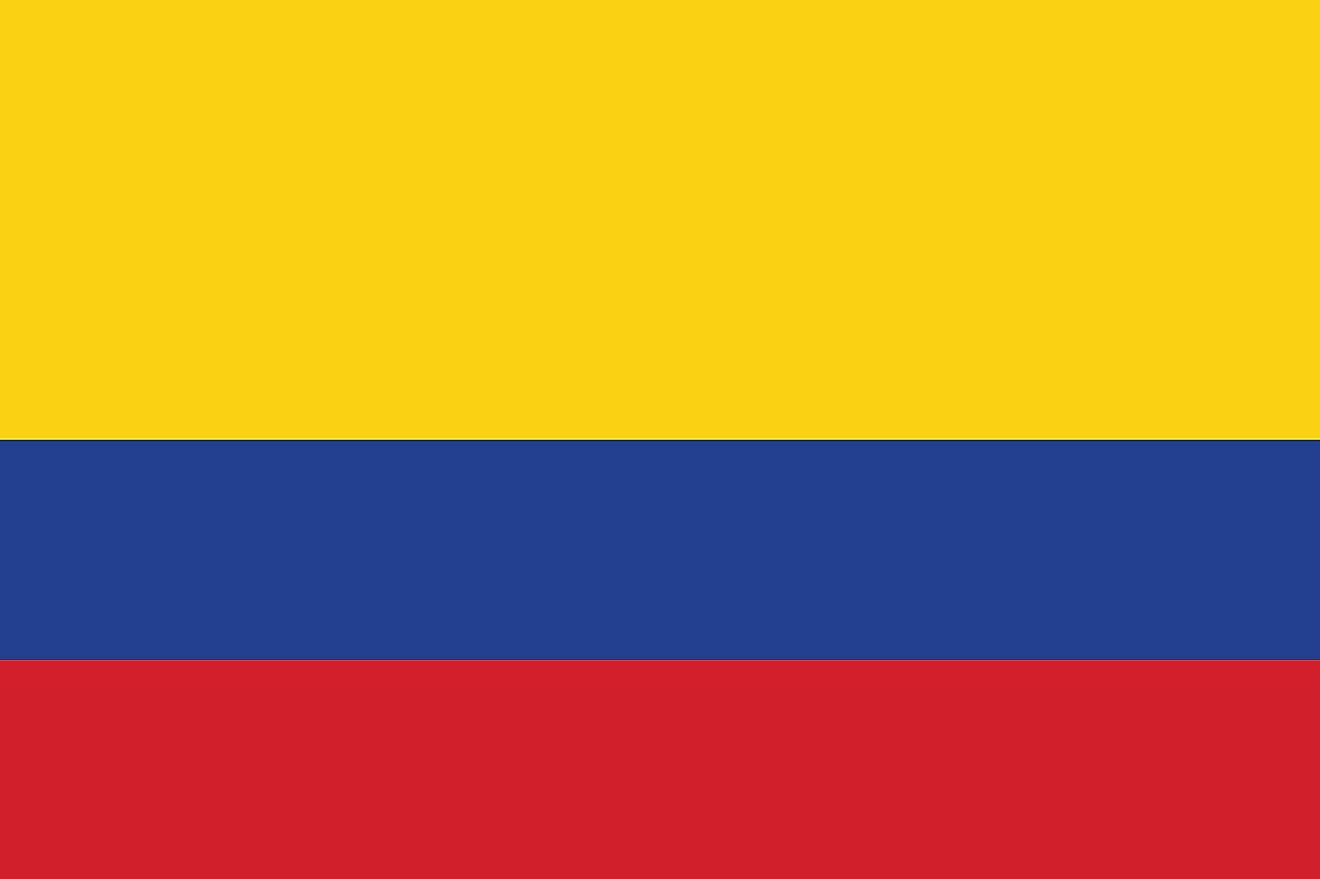
The National Flag of Colombia was officially adopted on November 26, 1861. The flag was designed by Francisco de Miranda – a Venezuelan General.
The National Flag of Colombia features three horizontal bands of yellow (top, double-width), blue, and red. The colors of the flag are commonly interpreted in two ways. One version indicates that the yellow symbolizes sovereignty and justice, blue as loyalty and vigilance, and red represents the valor shown and the victory achieved during the battles for independence from Spain. Another version in a popular children’s song claims that yellow represents the gold Colombia once owned until the arrival of the Spanish, blue indicates the country's contact with two oceans and red represents the blood that Colombians spent in their struggle for independence from Spain. The flag has a width-to-length proportion ratio of 2:3.
History of the Flag of Colombia
Many different variations of the modern Colombia flag have been used before. The colors of the flag have their origins during the struggle for independence against Spain in 1810. The current flag of Colombia retained the three main colors of the banner of Gran Colombia (founded by Simon Bolívar). In 1830, the Gran Colombia - the short-lived South American republic broke into the present-day nations of Colombia, Panama, Ecuador, and Venezuela. In 1831, the flag had the seal of Colombia placed in the center of the new red-blue-yellow vertical tricolor flag. In 1861, the design of the flag was changed to a horizontal tricolor consisting of a large yellow band.
Symbols of Colombia
The National Coat of Arms of Colombia

The current Coat of Arms of Colombia was officially adopted on May 9, 1834. At the center of the Coat of Arms is a shield which is divided into three sections. the base section shows the Isthmus of Panama, which belonged to Colombia until 1903. The middle section uses a Phrygian cap, which is a traditional symbol of freedom. The top section shows a pomegranate with two cornucopias (horn of plenty), which is a colonial symbol for the Viceroyalty of New Grenada. At the top of the shield is an endangered species – the Andean Condor, holding an olive branch in its beak. Behind the shield is a sail made from the Colombian National Flag, draped over the spears. Above the shield is a ribbon displaying the national motto: "Libertad Y Orden" ("Liberty and Order").
National Motto
"Libertad y Orden" ("Liberty and Order").
National Anthem
- Anthem Title: "Himno Nacional de la República de Colombia" ("The National Anthem of the Republic of Colombia")
- Music Composer: Oreste Sindici
- Lyricist: Rafael Núnez
- Date of Adoption: October 28, 1920.
"Himno Nacional de la República de Colombia" is the national anthem of the Republic of Colombia. The music of the anthem was composed by an Italian Opera singer named Oreste Sindici and the lyrics have been written by former Colombian President - Rafael Núnez. The anthem was officially adopted on October 28, 1920.
Himno Nacional de la República de Colombia (Spanish)
CORO DEL HIMNO
¡O, gloria inmarcesible!
¡O, júbilo inmortal!
En surcos de dolores,
el bien germina ya. (repetir)
((Repetir todos))
I
Cesó la horrible noche.
La libertad sublime
derrama las auroras
de su invencible luz.
La humanidad entera,
que entre cadenas gime,
comprende las palabras
del que murió en La Cruz.
II
"¡Independencia!", grita
el mundo americano.
Se baña en sangre de héroes
la tierra de Colón.
Pero este gran principio;
"El rey no es soberano"
resuena, y los que sufren
bendicen su pasión.
III
Del Orinoco el cauce
se colma de despojos,
de sangre y llanto un río
se mira allí correr.
En Bárbula no saben
las almas ni los ojos,
si admiración o espanto
sentir o padecer.
IV
A orillas del Caribe,
hambriento un pueblo lucha,
horrores prefiriendo
a pérfida salud.
¡Oh, sí!, de Cartagena
la abnegación es mucha,
y escombros de la muerte
desprecia su virtud.
V
De Boyacá en los campos,
el genio de la gloria,
con cada espiga un héroe
invicto coronó.
Soldados sin coraza
ganaron la victoria;
su varonil aliento
de escudo les sirvió.
VI
Bolívar cruza el Ande
que riegan dos océanos,
espadas cual centellas
fulguran en Junín.
Centauros indomables
descienden a los llanos,
y empieza a presentirse,
de la epopeya el fin.
VII
La trompa victoriosa
en Ayacucho truena,
que en cada triunfo crece
su formidable son.
En su expansivo empuje
la libertad se estrena,
del cielo americano
formando un pabellón.
VIII
La virgen sus cabellos
arranca en agonía
y de su amor viuda
los cuelga del ciprés.
Lamenta su esperanza
que cubre loza fría,
pero glorioso orgullo
circunda su alba tez.
IX
La patria así se forma,
termópilas brotando;
constelación de cíclopes
su noche iluminó.
La flor estremecida
mortal el viento hallando,
debajo los laureles
seguridad buscó.
X
Mas no es completa gloria
vencer en la batalla,
que el brazo que combate
lo anima la verdad.
La independencia sola
el gran clamor no acalla;
si el sol alumbra a todos,
justicia es libertad.
XI
Del hombre los derechos
Nariño predicando,
el alma de la lucha
profético enseñó.
Ricaurte en San Mateo,
en átomos volando,
"Deber antes que vida,"
con llamas escribió.
The National Anthem of the Republic of Colombia
Chorus
Oh, unwithering glory!
Oh, immortal jubilance!
In furrows of pain,
goodness now germinates. (Repeat)
((Repeat all))
I
The dreadful night has ceased.
Sublime Liberty
beams forth the dawn
of her invincible light.
All of humanity
that groans within its chains,
understands the words
of He who died on the cross.
II
"Independence!" shouts
the American world;
The land of Columbus.
Is bathed in heroes' blood.
But this great doctrine;
"The king is not the sovereign",
resounds, and those who suffer
bless their passion.
III
The Orinoco's bed
Is heaped with plunder,
Of blood and tears
A river is seen to flow.
In Bárbula
neither souls nor eyes,
know whether admiration to feel
or fear to suffer.
IV
On the shores of the Caribbean,
a famished people fight,
preferring horror
to fickle health.
O, aye! from Cartagena
heavy is the hardship,
and death's rubble her virtue disdains.
V
From Boyacá in the fields,
the genius of glory,
from every sprig a hero
was crowned undefeated.
Soldiers without armor
won the victory;
their virile spirit
served them as a shield.
VI
Bolívar crosses the Andes
bathed by two oceans,
swords as though sparks
flash in Junín.
Indomitable centaurs
descend to the plains,
and a premonition begins to be felt,
of the epic's end.
VII
The victorious trumpet
in Ayacucho loudly thunders,
as in every triumph grows
its formidable sound.
In its expansive thrust
Liberty is first felt,
from the American sky
forming a pavilion.
VIII
In agony, the Virgin
Tears out her hair,
and bereft of her love,
leaves it to hang on a cypress.
Regretting her hope
covered by a cold headstone,
but glorious pride
hallows her fair skin.
IX
Thus the motherland is formed,
Thermopylaes bursting forth;
a constellation of cyclops
the night did brighten.
The trembling flower
finding the wind mortal,
underneath the laurels
safety sought.
X
But it's not complete glory
to defeat in battle,
the arm that fights
is encouraged by truth.
For independence alone
The great clamour doesn't silence;
if the sun shines on everyone,
justice is liberty.
XI
Of men the rights
Nariño's preaching,
the soul of struggle
was prophetically taught.
Ricaurte in San Mateo,
in atoms flying,
"Duty before life,"
with flames he wrote.
The Currency of Colombia is the Colombian peso
The current official currency of Colombia is the Colombian peso (COL$). The Central Bank of Colombia (Banco de la República) is solely responsible for issuing the currency in varied denominations.
One Colombian peso is subdivided into 100 centavos. Due to its low value, centavo coins are rarely issued and the lowest denomination currently used is the 50-peso coins.
Peso Coins
Between 1837 and 1839, the Republic of New Grenada introduced silver and gold reals and pesos. This occurred before the country's name changed to the United States of Colombia. The denominations of coins issued were 8, 2, 1, ½, and ¼ real coins, which were made of silver, as well as 2, 1, and 16 pesos made of gold. Over the years, the material used to make these coins has evolved from silver, gold, and cupro-nickel to bronze. The denominations of coins used in Colombia today are 1,000, 100, 500, 50, 100, 200, and 20 pesos.
Banknotes and Issues
The first paper money issued in Colombia was introduced between 1857 and 1880 in denominations of 10, 50, 10, 5, 3, 2, and 1 pesos, and 10 and 50 centavos. Since then the Colombian currency has undergone many changes. One change is the introduction of other denominations, such as the 200, 500, 2,000, and 1,000 pesos. More security features have also been introduced, like the number “2” written in Braille on the 2,000 pesos. Last year, Colombia's Central Bank introduced a new series of banknotes, namely 100,000, 50,000, 20,000, 10,000, 5,000, and 2,000 pesos. These new notes highlight various aspects of Colombian cultural heritage, science, and politics.
Historical Currencies of Colombia
Before 1810, Colombia used the real as its currency. However, real was replaced by the peso in 1810 at the rate of 8 reals per peso. In 1847, the peso was subdivided into ten reals to cater to the need for decimalization. In 1871, the Republic of Colombia transitioned to the gold standard. The new standard pegged the peso to the French franc at an exchange rate of 1 peso for every 5 francs. This continued until 1888 when Colombia's paper money depreciated so much that the exchange rate between paper money and coins became 100-peso moneda corriente for every 1-peso coin. In 1931, Colombia shifted its peg to the US dollar at 1.05 pesos for each dollar. Colombian paper money was denominated as peso oro until 1993 when the term “oro” was dropped.
